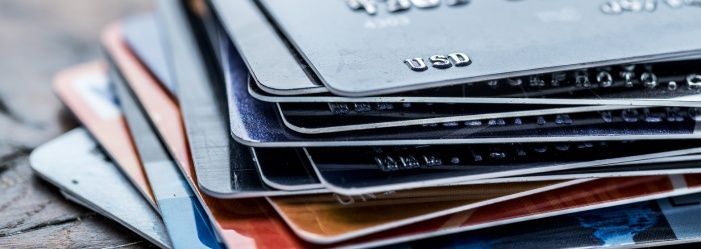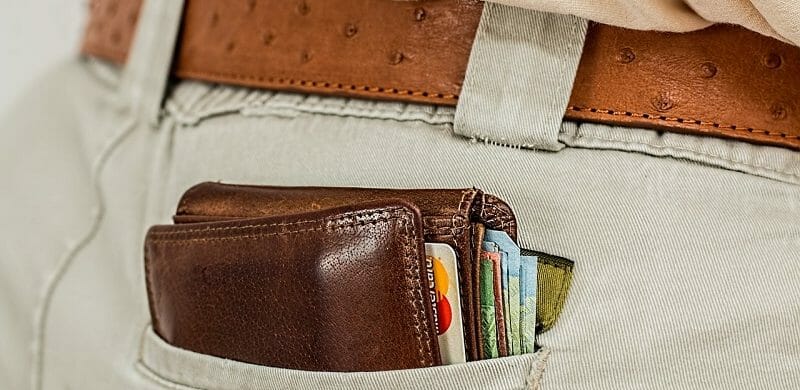Last Updated: March 22, 2024
Disclaimer: We are not qualified legal or tax professionals and are not giving advice. Always speak with a qualified professional before making any legal or financial decisions.
How many Credit Card Should I Have?
In today's financial landscape, the question of how many credit cards one should possess is more relevant than ever. With a myriad of options at our fingertips, each offering unique rewards, benefits, and opportunities to build credit, it's tempting to explore the possibilities.
However, managing multiple credit lines demands a careful balancing act between optimizing rewards and maintaining financial health.
In this comprehensive guide, we delve into the pivotal considerations for determining the right number of credit cards tailored to your lifestyle and financial goals.
From the impact on your credit score to strategic rewards accumulation, discover how to navigate the complexities of credit with confidence and precision.
If you'd rather speak to a debt specialist now, click here for a free consultation.
Using Introductory Credit Card Offers
When you open a new credit card, issuers often offer introductory 0% APR promotions on purchases and balance transfers. These short-term offers can provide nice savings if used strategically, but the devil is in the details.
- 0% purchase APR: This allows interest-free financing on new purchases for a promotional period, usually 12-18 months. It can help fund a large necessary purchase or stretch the budget temporarily. Ensure you'll pay off the full amount before the normal APR kicks in.
- 0% balance transfer offer: Transferring an existing balance from another higher-interest card can reduce financing costs. But watch out for balance transfer fees. And have a payoff plan for when the promotion ends to avoid getting stuck paying deferred interest.
- Risks: Introductory offer periods are temporary. Failing to pay off the card by the end of the promo means all deferred interest often gets applied. This hits principal balances plus many months of accumulated interest instantly.
- Tips: Mark the calendar for when normal rates take effect. Set up automatic payments accordingly. Leave a cushion in case anything disrupts the ability to pay. Limit the use of a card with an active introductory offer to only what you can afford to pay off.
Intro offers provide short-term flexibility but shouldn't replace the fundamental focus on spending control and the ability to pay statement balances in full over the long run.
Choosing Your First Credit Card
If you don't have any credit cards yet, it's important to choose your first card wisely. Here are some tips:
- Check your credit score - Before applying, check your credit score so you know your chances of approval for different cards. NerdWallet's pre-qualification tool can give estimates without hurting your score. Those new to credit may need to start with a secured card.
- Consider your spending - Think about where you spend the most. Find a card that aligns with your top spending categories like gas, dining, and groceries to earn the most rewards. Cash-back cards provide flexible rewards.
- Compare fees - NerdWallet calculations show the average fee on credit cards is around $90/year. Cards with no annual fee make the best first card in most cases. Also, check for balance transfer or foreign transaction fees.
- Look for useful perks - For a first card, extended warranty, price protection, rental car insurance, etc can provide value on top of rewards.
- Pay in full - Don't take on debt you can’t afford. Pay statements in full each month. Set up autopay if it helps. Interest charges add up and hurt your credit utilization.
Choosing just one all-purpose credit card with no annual fee is generally the best move initially. Build credit history and financial skills first before opening additional cards down the road.
Pros and Cons of Multiple Credit Cards

Having more than one credit card comes with tradeoffs to consider:
Multiple Credit Cards Pros
- Better rewards: You can earn more rewards using different cards for different purchase categories like gas, groceries, and dining.
- Higher credit limit: Having more available credit from multiple cards means you can keep individual card balances low as a percentage of the total limit. This helps the credit utilization ratio.
- Backup option: If there are issues with one card, you have another to use while it's resolved.
Multiple Credit Cards Cons
- More fees: Cards may charge annual, balance transfer, cash advance, or foreign transaction fees. More cards = more potential fees.
- Difficult to track: Different statement closing dates and payment due dates require organization. It's easy to miss payments.
- Account closure risk: Issuers may close unused cards. This can lower total available credit and increase utilization.
Analyze your finances and spending to decide if the pros outweigh the cons in your situation.
How to Manage Multiple Credit Cards Responsibly
While having multiple credit cards can provide certain benefits, it also has potential pitfalls. Make sure you take steps to manage your cards properly:
- Set up automatic payments to avoid late fees or dings to your credit. Even missing one payment can negatively impact your credit score.
- Use calendar reminders, notes, or another system to track payment due dates for each card. It's easy to lose track when you have different billing cycles.
- Check your credit report regularly to catch any errors or fraudulent activity.
- Focus on paying your statement balance in full every month. Carrying balances leads to expensive interest charges. If you ever struggle to pay in full, check out our budgeting tips in "How to Create a Monthly Budget You Can Stick To".
Recommended Credit Card Pairings
Choose cards strategically based on bonus categories:
Gas Cards
- Citi Custom Cash + Chase Freedom Flex
Citi Custom Cash earns 5% cash back on gas for the first $500/month. Freedom Flex offers 5% back on gas quarterly with no dollar cap. Use a Citi card until the $500 cap is met, then Freedom Flex.
Grocery Cards
- Amex Blue Cash Preferred + Chase Freedom Flex
Blue Cash Preferred earns 6% back at US supermarkets up to $6,000/year. Freedom Flex offers 5% back quarterly at grocery stores (excluding Target/Walmart) with no dollar cap. Use Blue Cash until the annual cap is met, then Freedom Flex.
Dining Cards
- Capital One SavorOne + Citi Custom Cash
SavorOne earns unlimited 3% cash back on dining, and entertainment. Custom Cash earns 5% on the first $500 in combined monthly purchases. Use Custom Cash for dining until the $500 cap is met, then SavorOne.
FAQs
Conclusion
Having multiple credit cards can be advantageous if managed responsibly. The right combination of cards earns better rewards and keeps utilization low to help your credit score. However, more cards require diligent tracking of billing cycles and payments.
Set up autopay and account alerts, consolidate statement closing dates if possible, and check your credit report regularly. Find the optimal number of credit lines for your situation - one card works for some while others leverage rewards across 3+ strategically paired cards.
Whatever your comfort limit is, being organized prevents missed payments as card obligations increase. At the end of the day, proper card management comes down to understanding your finances enough not to take on more than you can handle.
RELATED POSTS
- The 5 Main Credit Score Factors You Need To Know (November 23, 2020)
- How To Do A Credit Card Balance Transfer (November 4, 2020)
- The 8 Best Apps for Monitoring Your Credit Score (October 12, 2020)
- What You Should Do If You Experience a Data Breach (September 24, 2020)
- How To Rent An Apartment With Bad Credit (February 7, 2020)
Arin from Tomah Wisconsin Debt Relief ReviewDeborah from Shinglehouse Pennsylvania Debt Relief Review
*Disclaimer: Pacific Debt Relief explicitly states that it is not a credit repair organization, and its program does not aim to improve individuals' credit scores. The information provided here is intended solely for educational purposes, aiding consumers in making informed decisions regarding credit and debt matters. The content herein does not constitute legal or financial advice. Pacific Debt Relief strongly advises individuals to seek the counsel of qualified professionals before undertaking any legal or financial actions.
Reduce Your Credit Card Debt By Up to Half

BBB Reviews | 4.9/5.0 Rating









 Do Not Sell My Personal Information
Do Not Sell My Personal Information